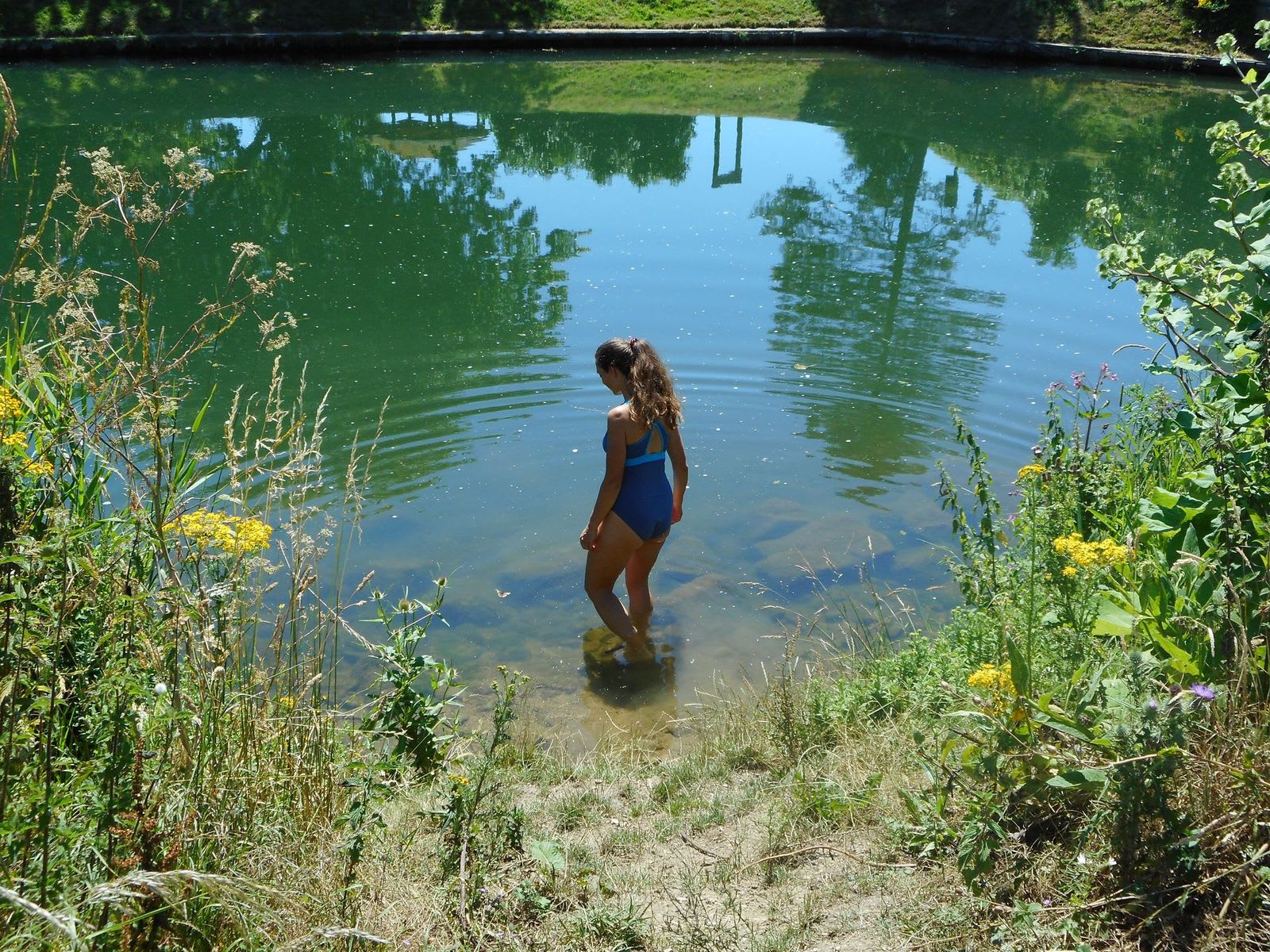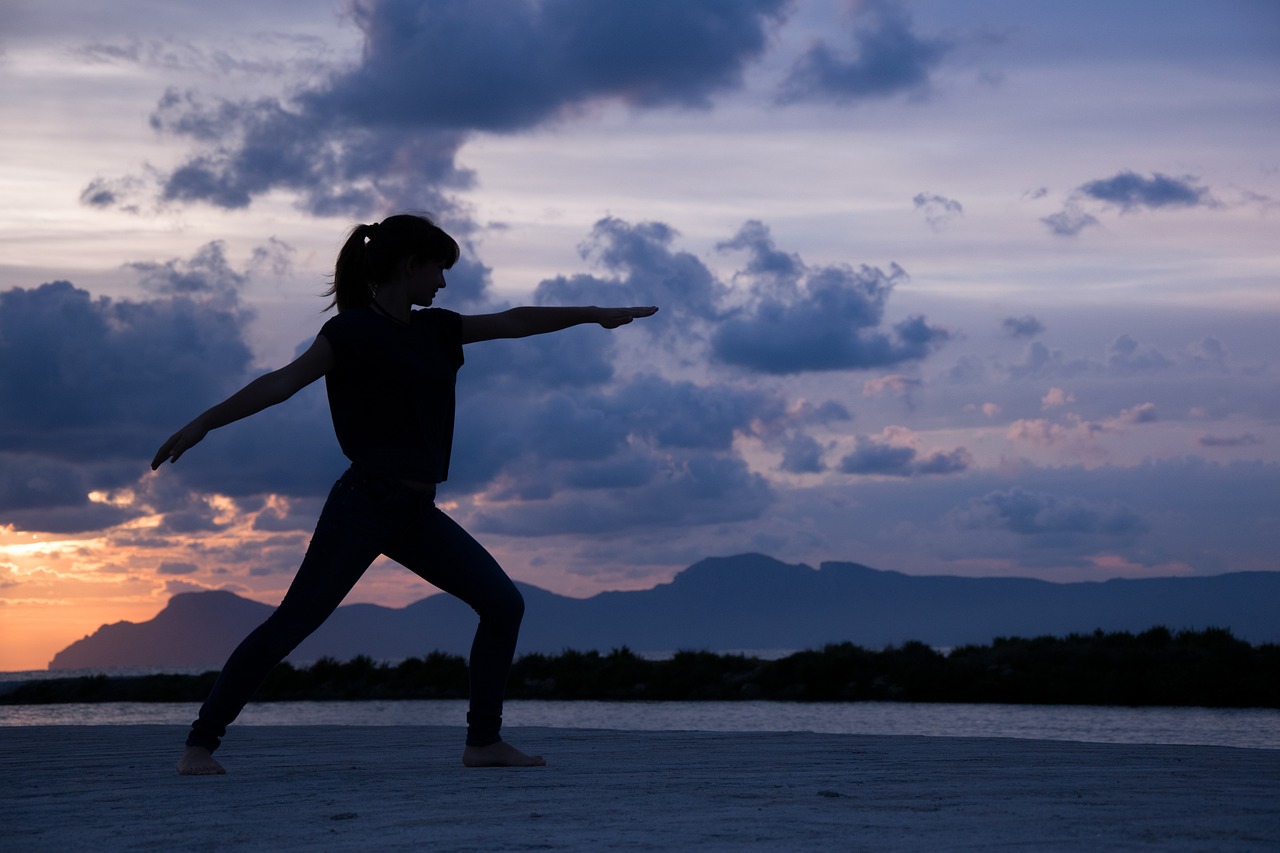While some people are cowering from the winter weather, our county’s love-affair with plunging into rivers and lakes continues to gather pace, but what is it that entices people to enter the chilling flow and why do we love it so? Esther Lafferty attempts to explain her love affair with wild swimming.
Wild swimming – or the practice of swimming in natural waters (although the Oxfordshire landscape is hardly an untamed wilderness) – has been experiencing a renaissance of late. It’s an activity that is surely as old as the hills and yet it’s also where the twenty-first world collides with the timeless and the ethereal. Rivers are wonderful living pathways that appear boldly in town centres and then peacefully wend their enchanted way through undiscovered countryside before popping up in an entirely different muddy hamlet or traffic bottleneck.
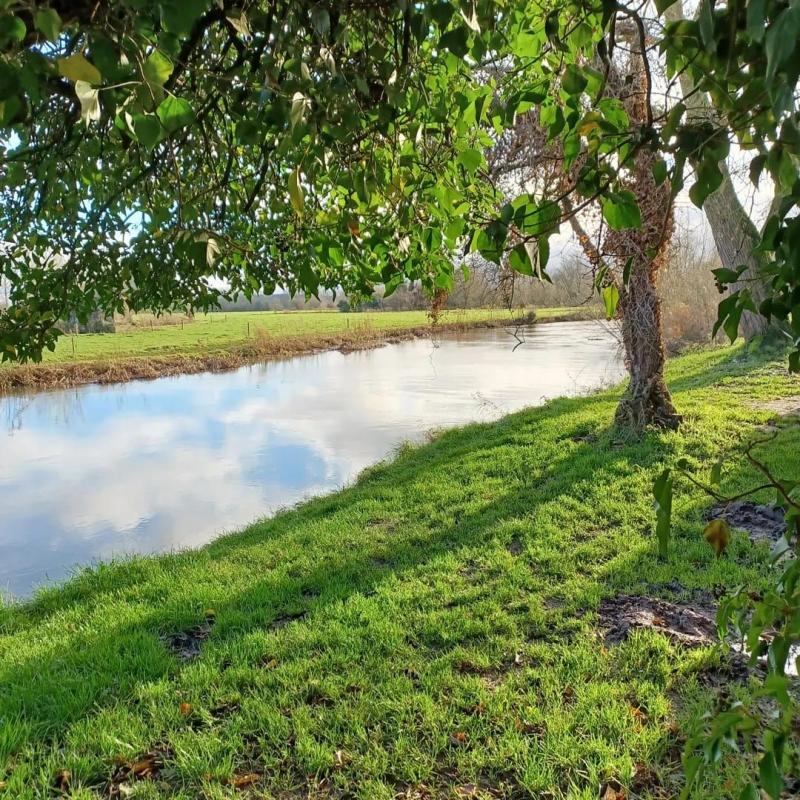 In the winter, before taking the plunge, there’s the anticipation you’d feel before a fairground ride, an excitement and a trepidation that this is the day that the fear of the cold will leave you on the river bank. Then there’s the moment of immersion when the sheer chill brings forth a silent determination or squeals and shrieks, ranging from the high pitched inadvertent operatic to something more akin to the infamous When Sally met Harry café scene. And then, because this is always funny and for safety’s sake we never swim alone, we laugh. And we laugh some more.
In the winter, before taking the plunge, there’s the anticipation you’d feel before a fairground ride, an excitement and a trepidation that this is the day that the fear of the cold will leave you on the river bank. Then there’s the moment of immersion when the sheer chill brings forth a silent determination or squeals and shrieks, ranging from the high pitched inadvertent operatic to something more akin to the infamous When Sally met Harry café scene. And then, because this is always funny and for safety’s sake we never swim alone, we laugh. And we laugh some more.
Although there are neoprene-clad triathletes that slog round lakes at speed, and sleek long-distance swimmers who can whip back and forth across Windermere in an afternoon, for the most past, getting into the water is a very levelling experience. Whatever your age, body shape, walk of life or reason for showing up, each swimmer is equal as they approach the water’s edge. Each leaves behind the labels that defines them day-in, day-out: Lizzie the freelancer, Charlie’s mum and Bev-who’s-beating-breast-cancer line up together shedding descriptors like the skins of mythical Selkies, exposing their inner beings to the elements. Whatever worries each may carry on their shoulders slide into the river as we do, and dissipate downstream.
Once immersed, there’s a jubilation, ‘I did it; I’m tougher than I think’, and a fizz on the skin like a party of fizzy bubbles, a sensation of electricity and an aliveness, a winning combination of vitality and vivacity. This is a considered mindfulness moment for those with a Zen approach to life; and unplanned mindfulness for the rest of us who can’t help but think only about the here, the now, and the ‘Oh, it’s bloomin’ bracing!’, before an almost eerie calm kicks in.
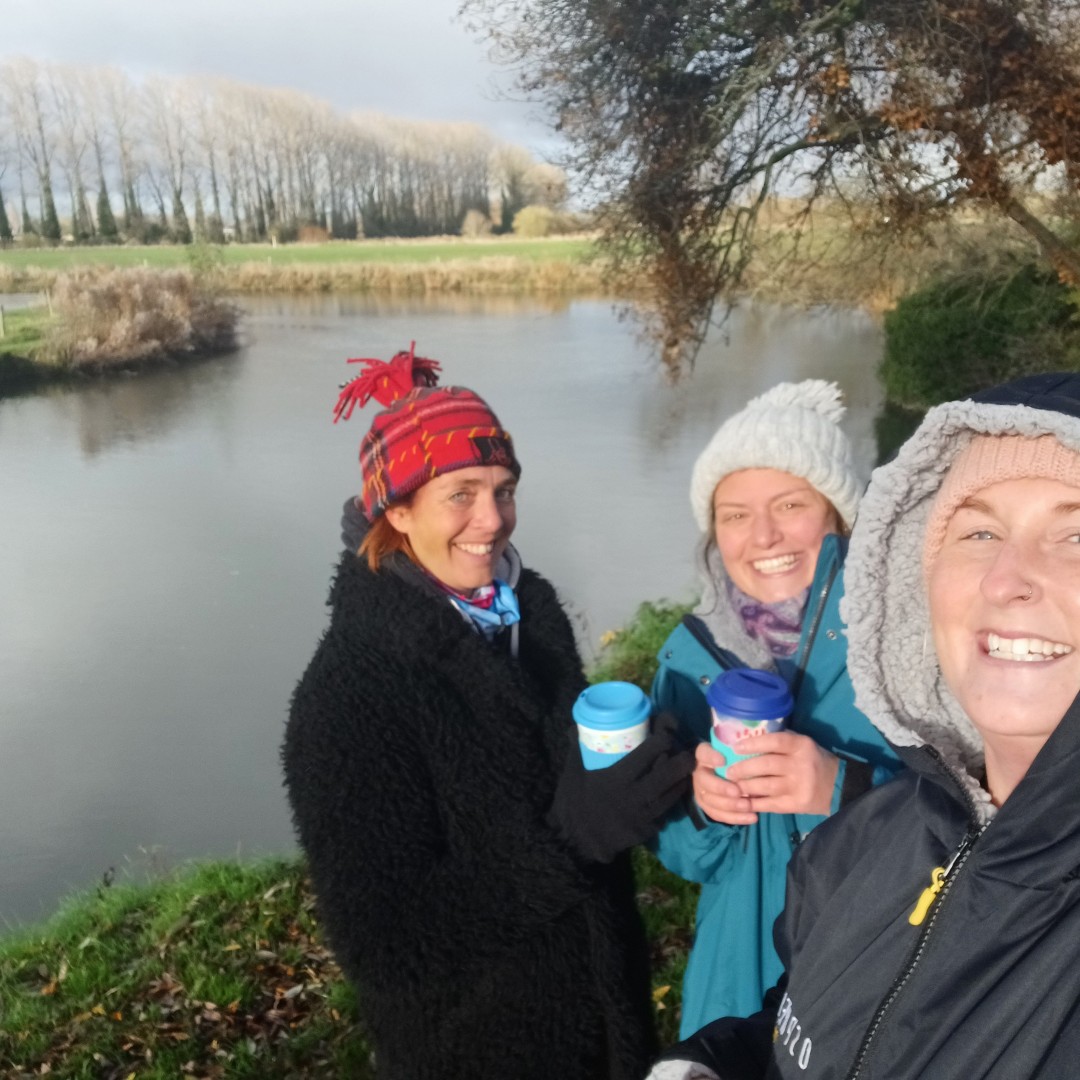 Winter swimming is velvet-smooth and invigorating. By immersing myself in the water’s flow, I become something other than who I am on land: I am buffeted by the power of nature which ebbs and flows against my skin, beneath me and around me. I am on a par with the swans and the unseen otters. A kingfisher occasionally flashes past overhead. It’s simple, it’s free and has great health benefits – it’s said to save off low moods and build physical resilience. It’s also a social activity that takes place outside – a big tick in a pandemic.
Winter swimming is velvet-smooth and invigorating. By immersing myself in the water’s flow, I become something other than who I am on land: I am buffeted by the power of nature which ebbs and flows against my skin, beneath me and around me. I am on a par with the swans and the unseen otters. A kingfisher occasionally flashes past overhead. It’s simple, it’s free and has great health benefits – it’s said to save off low moods and build physical resilience. It’s also a social activity that takes place outside – a big tick in a pandemic.
Wild swimming feels like a celebration of one’s free-spirit paired with a liberal dashing of low-level rebellion that amuses me: I wear a ridiculous hat; my parents still do not approve although I’ve been dunking for a decade; my husband thinks I’m crazed; and random people on the river bank stand stock still in horror at the prospect. We try to kid ourselves it’s in awe but if I’m honest, I’m not so sure.
Rivers have different characters – whereas mountain rivers are hard rock, icy and edged with spiked evergreen, we’re lucky to have Old Father Thames in our midst. The Thames is lush and almost Amazonian in the places where willows dapple sweeping curves. In comparison to swimming in the sea where the world feels vast and rolling waves threaten to submerge you, swimming between its banks is an intimate experience, although sometimes it’s fierce (sometimes too fierce to venture into), and sometimes, gentle.
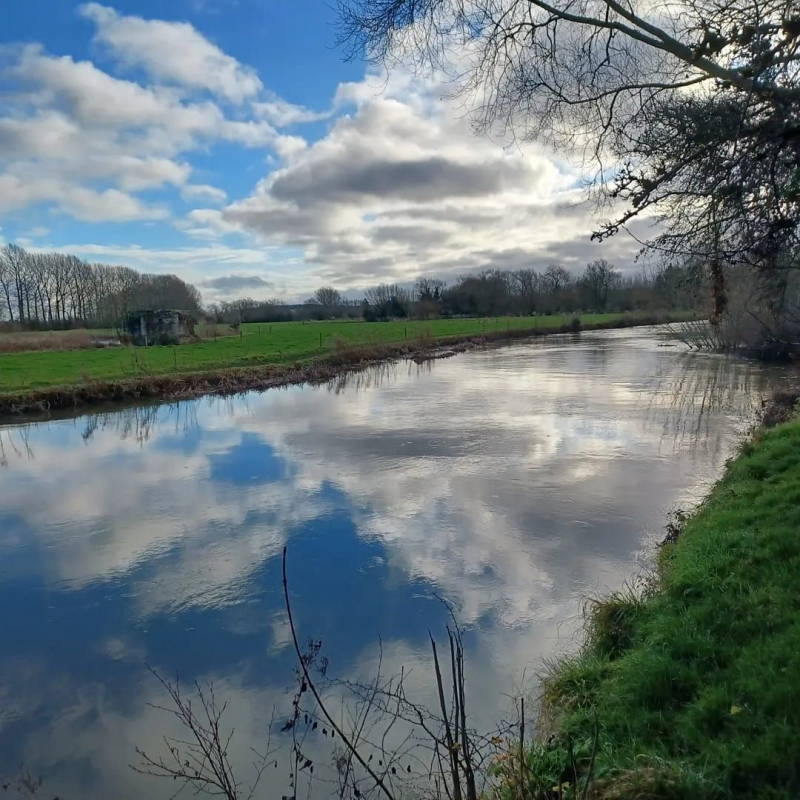 Over the weeks and months, it’s a delight to watch the river change. In winter the swim from Abingdon lock to St Helen’s Wharf is a dark ink adventure under amber streetlights, which transforms in summer into a ribbon of golden silk as the sun sets. In May the banks will be alive with yellow flag irises and dragonflies, and then in July and August purple flowers – and fair-weather bikinis – will bloom along the river’s edge. You’ll aways, however, find strikingly distinct stripes of water temperature at Newbridge where the cold of the Windrush tributary joins the Thames under the arches of an old stone bridge and where during the civil war, King Charles’ troops held back the Roundheads so he could escape from Oxford to Abingdon and regroup, and so it could be said, changed the course of history. And whilst the water quality can be an issue downstream of certain towns and floodplains, the winding Upper Thames above this spot is generally clean and fresh although we don’t recommend you drink it!
Over the weeks and months, it’s a delight to watch the river change. In winter the swim from Abingdon lock to St Helen’s Wharf is a dark ink adventure under amber streetlights, which transforms in summer into a ribbon of golden silk as the sun sets. In May the banks will be alive with yellow flag irises and dragonflies, and then in July and August purple flowers – and fair-weather bikinis – will bloom along the river’s edge. You’ll aways, however, find strikingly distinct stripes of water temperature at Newbridge where the cold of the Windrush tributary joins the Thames under the arches of an old stone bridge and where during the civil war, King Charles’ troops held back the Roundheads so he could escape from Oxford to Abingdon and regroup, and so it could be said, changed the course of history. And whilst the water quality can be an issue downstream of certain towns and floodplains, the winding Upper Thames above this spot is generally clean and fresh although we don’t recommend you drink it!
If you are interested in swimming in the Oxfordshire great outdoors, then the best place to start is on Facebook! Search for Oxfordshire Bluetits, an informal welcoming group of people who like to dip, dunk or swim, with or without wetsuits. There are no fees, rules, requirements or regulations and there are swimming opportunities almost daily in the Thames, local lakes and more.
We recommend you take the time to read up on staying safe in bodies of open water before you venture in.
